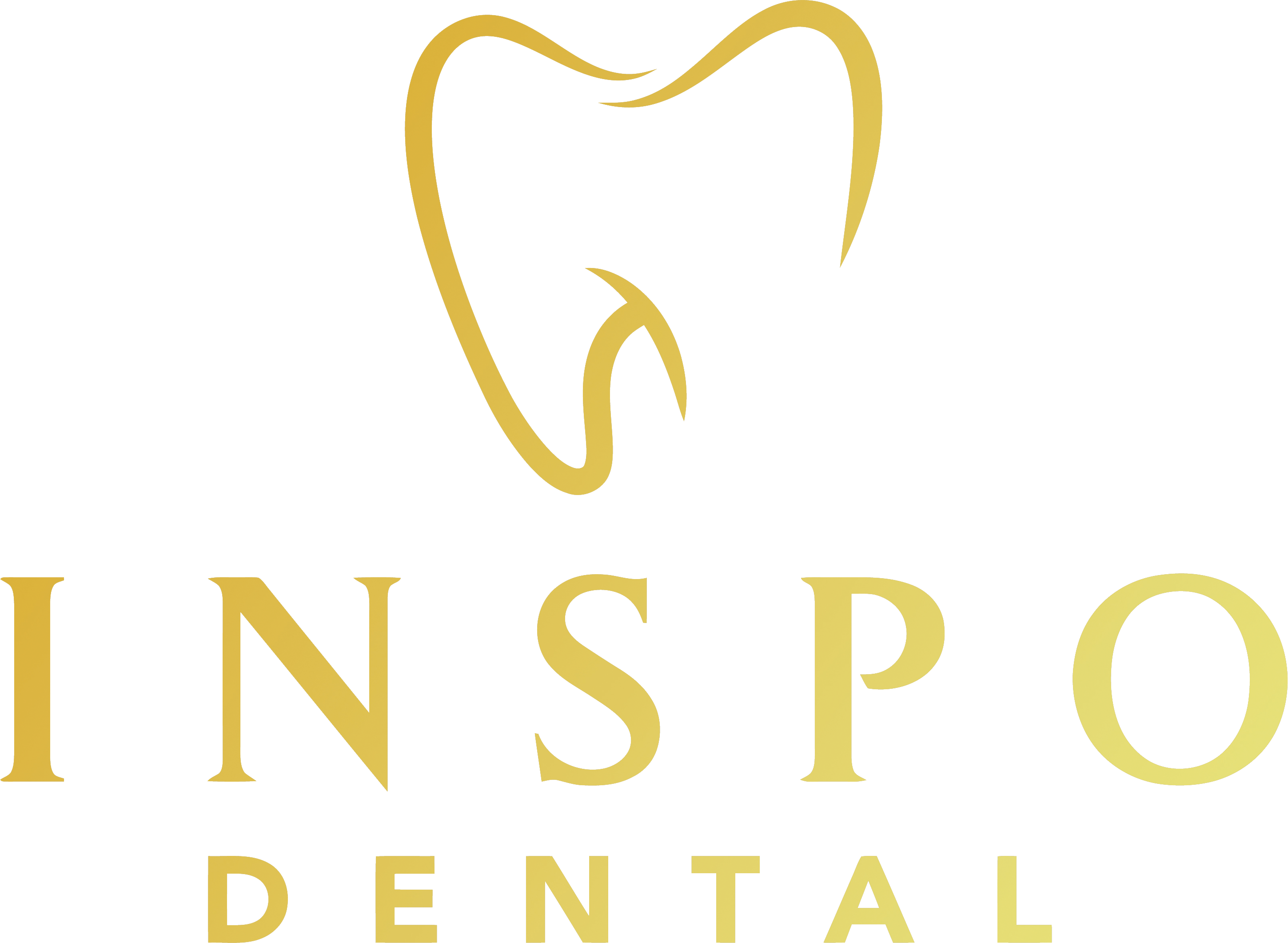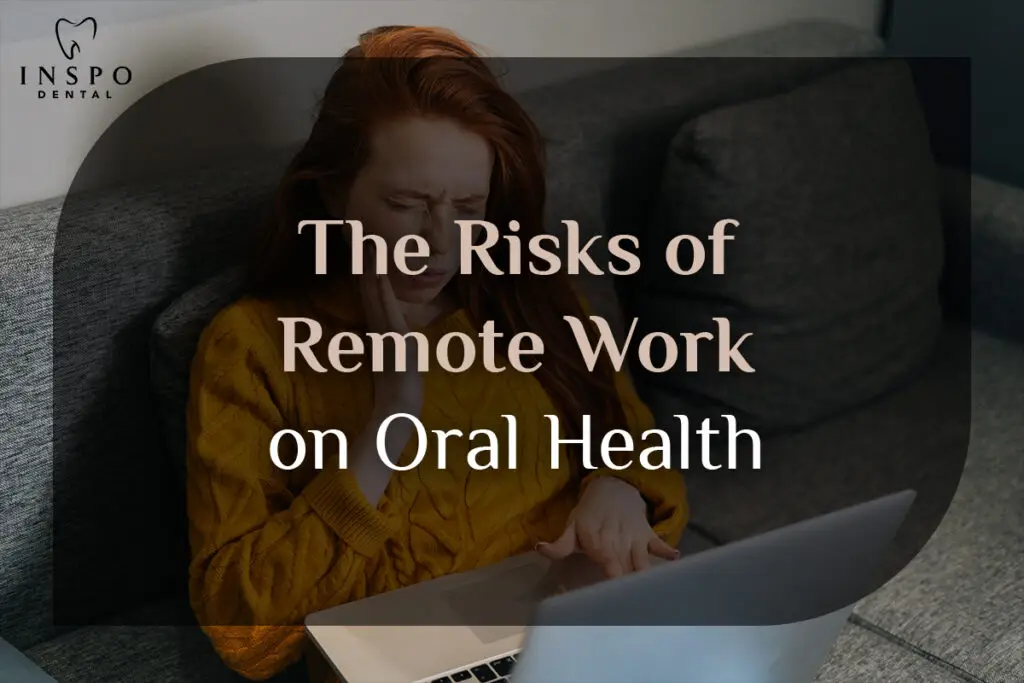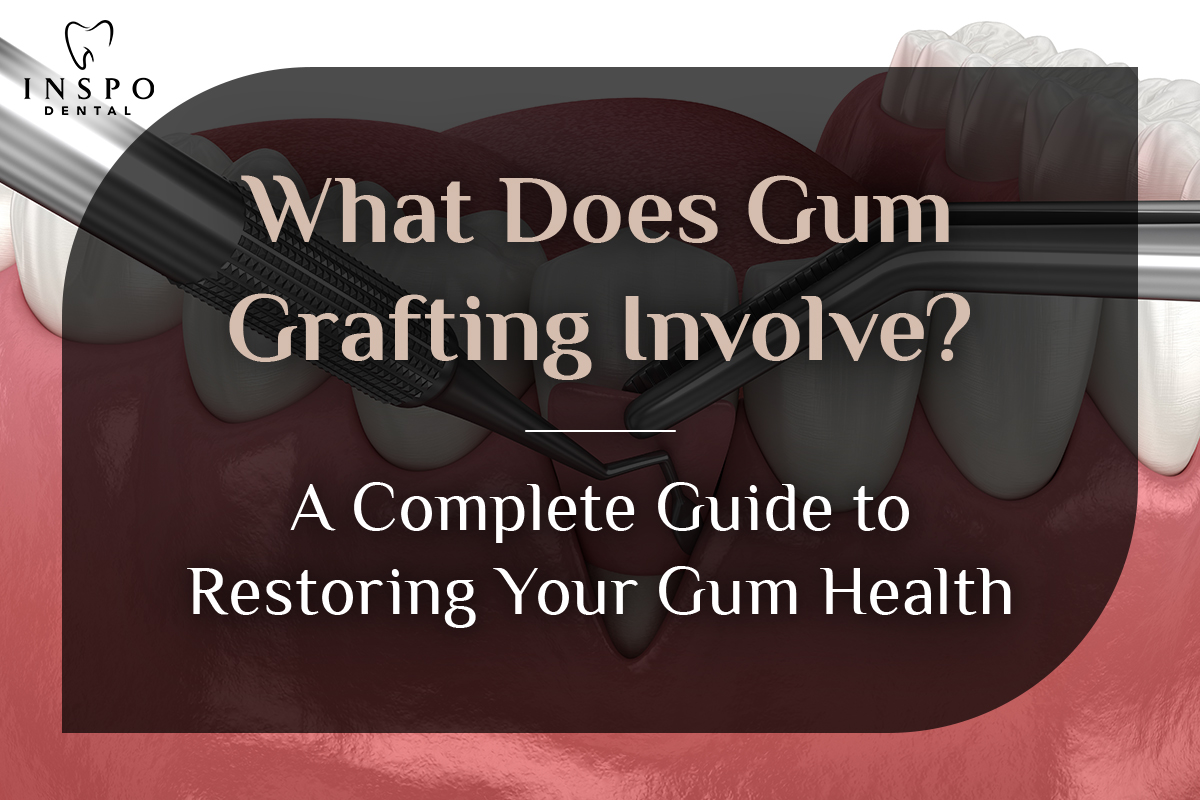The Risks of Remote Work on Oral Health
The shift to remote work has revolutionized how we approach our professional lives, offering flexibility and convenience. However, this new way of working can inadvertently impact oral health. From disrupted routines to increased snacking, remote work introduces several challenges to maintaining a healthy smile. Let’s explore these risks and how to mitigate them.
- Irregular Oral Hygiene Routine
Working from home often disrupts daily routines, including oral hygiene habits.
- Problem: Skipping morning or nighttime brushing due to flexible schedules or prolonged work hours.
- Impact: Increased risk of cavities, plaque buildup, and gum disease.
- Solution: Set alarms or reminders to brush your teeth twice a day and floss daily, regardless of your schedule.
- Increased Snacking and Sugary Beverages
The convenience of a fully stocked kitchen can lead to frequent snacking and increased consumption of sugary or acidic foods and drinks.
- Problem: Frequent snacking exposes teeth to constant acid attacks, weakening enamel.
- Impact: Higher risk of cavities, tooth decay, and gum irritation.
- Solution:
- Choose tooth-friendly snacks like cheese, nuts, or vegetables.
- Limit sugary drinks and opt for water instead.
- Rinse your mouth with water after snacking.
- Dehydration and Dry Mouth
Remote workers often drink less water and more coffee or tea during long work hours.
- Problem: Caffeine can lead to dehydration, reducing saliva production.
- Impact: Dry mouth increases the risk of cavities, gum disease, and bad breath.
- Solution:
- Drink plenty of water throughout the day to stay hydrated.
- Chew sugar-free gum to stimulate saliva production.
- Limit caffeine intake to maintain oral moisture.
- Teeth Grinding (Bruxism)
Remote work can introduce new stressors, such as blurred boundaries between work and personal life or the pressure of self-management.
- Problem: Stress and anxiety often lead to teeth grinding, especially during sleep or while concentrating.
- Impact: Jaw pain, headaches, worn enamel, and even cracked teeth.
- Solution:
- Practice stress-reducing activities like yoga or meditation.
- Use a nightguard if grinding occurs at night.
- Take regular breaks to relax your jaw muscles.
- Poor Ergonomics and Jaw Strain
Improper workspace setups, such as working from a couch or bed, can strain the neck and jaw.
- Problem: Poor posture affects jaw alignment and can lead to temporomandibular joint (TMJ) disorders.
- Impact: Jaw pain, clicking sounds, and difficulty chewing.
- Solution:
- Set up an ergonomic workstation with proper seating and screen alignment.
- Maintain good posture with shoulders relaxed and head upright.
- Stretch your neck and jaw muscles regularly.
- Delayed Dental Appointments
Remote workers may deprioritize dental visits due to a lack of urgency or fear of exposure to germs.
- Problem: Delaying routine cleanings and exams allows dental issues to progress unnoticed.
- Impact: Plaque buildup, gum disease, and untreated cavities.
- Solution:
- Schedule regular dental checkups and cleanings every six months.
- Take advantage of flexible remote work hours to fit dental visits into your day.
- Mindless Eating During Work
Eating meals or snacks while working can result in poor chewing and quicker consumption.
- Problem: Improper chewing and hurried eating can affect digestion and oral health.
- Impact: Increased food particles left in the mouth, leading to plaque buildup.
- Solution:
- Take designated meal breaks away from your workspace.
- Chew food slowly and thoroughly to aid digestion and oral hygiene.
- Neglected Dental Emergencies
Remote workers may ignore dental discomfort due to busy schedules or reluctance to leave home.
- Problem: Ignoring toothaches or sensitivity can lead to more severe dental issues.
- Impact: Worsened decay, infections, or the need for extensive dental work.
- Solution:
- Address dental pain promptly with a professional evaluation.
- Maintain communication with your dentist for telehealth consultations if needed.
- Overreliance on Home Remedies
With more time at home, some may attempt DIY dental treatments rather than seeking professional care.
- Problem: Unverified home remedies can damage teeth or gums.
- Impact: Worsened oral conditions, enamel erosion, or gum irritation.
- Solution:
- Avoid DIY treatments and consult a dentist for reliable advice.
- Use over-the-counter products like fluoride toothpaste or mouthwash for minor concerns.
- Poor Diet Choices
Remote work can lead to increased reliance on convenience foods, which are often high in sugar and carbohydrates.
- Problem: These foods feed harmful bacteria in your mouth, contributing to decay and gum issues.
- Impact: Increased risk of cavities and gum inflammation.
- Solution:
- Maintain a balanced diet with plenty of fruits, vegetables, and lean proteins.
- Incorporate foods rich in calcium and phosphorus to strengthen teeth.
How to Maintain Oral Health While Working Remotely
- Stick to a Routine: Maintain a consistent schedule for brushing, flossing, and meals.
- Stay Active: Regular physical activity reduces stress and promotes overall well-being.
- Keep Dental Tools Nearby: Keep a toothbrush, floss, and mouthwash in your home office for easy access.
- Create Boundaries: Establish a clear separation between work and personal time to reduce stress.
- Snack Smart: Stock your kitchen with healthy, tooth-friendly options.
Long-Term Effects of Neglecting Oral Health While Working Remotely
If the risks associated with remote work on oral health are not addressed, they can lead to significant long-term consequences. Here are some of the potential outcomes and why it’s important to stay proactive:
- Tooth Decay and Cavities
- Cause: Frequent snacking, sugary drinks, and irregular brushing.
- Impact: Cavities can develop and worsen over time, requiring fillings, root canals, or even extractions.
- Prevention: Stick to a consistent oral hygiene routine and limit sugary or acidic foods.
- Gum Disease
- Cause: Plaque buildup from irregular flossing and brushing.
- Impact: Gum disease, such as gingivitis or periodontitis, can lead to gum recession, tooth loss, and even systemic health issues like heart disease.
- Prevention: Floss daily and visit your dentist for professional cleanings to prevent plaque buildup.
- Enamel Erosion
- Cause: Prolonged exposure to acidic foods, beverages, or stomach acid (from stress-related acid reflux).
- Impact: Weakened enamel can cause sensitivity and increase the risk of decay.
- Prevention: Use fluoride toothpaste and avoid frequent acidic food and drink consumption.
- Chronic Bad Breath (Halitosis)
- Cause: Poor oral hygiene, dry mouth, or untreated dental issues.
- Impact: Persistent bad breath can affect your personal and professional interactions, even in virtual settings.
- Prevention: Stay hydrated, practice good oral hygiene, and address underlying dental issues promptly.
- Jaw Pain and TMJ Disorders
- Cause: Stress-induced teeth grinding or poor ergonomic setups.
- Impact: Jaw misalignment, chronic pain, and difficulty chewing or speaking.
- Prevention: Use ergonomic furniture, take breaks to stretch your jaw, and consider a nightguard if grinding occurs during sleep.
- Systemic Health Issues
Oral health is closely linked to overall health. Neglecting oral care can have broader consequences:
- Cardiovascular Disease: Gum disease is associated with an increased risk of heart disease and stroke.
- Diabetes Complications: Poor oral health can exacerbate blood sugar management in diabetic patients.
- Respiratory Issues: Bacteria from the mouth can travel to the lungs, leading to infections or complications.
Actionable Tips for Remote Workers to Improve Oral Health
- Create a Dedicated Schedule
- Brush twice a day and floss at least once daily.
- Use reminders or timers to ensure you stick to your routine.
- Hydrate Throughout the Day
- Keep a water bottle at your desk to encourage hydration.
- Rinse your mouth with water after meals or snacks if brushing isn’t immediately possible.
- Upgrade Your Workspace
- Set up an ergonomic workstation to reduce jaw strain and prevent TMJ issues.
- Use a desk and chair that support proper posture to avoid neck and jaw misalignment.
- Opt for Healthy Snacks
- Choose snacks like raw vegetables, cheese, or nuts, which are less likely to harm your teeth.
- Avoid sticky or sugary foods that linger on teeth.
- Practice Mindful Eating
- Step away from your desk to eat meals, giving your oral health the attention it deserves.
- Chew food slowly and thoroughly to promote saliva production.
- Incorporate Fluoride
- Use toothpaste and mouthwash containing fluoride to strengthen enamel and fight cavities.
- Discuss fluoride treatments with your dentist for additional protection.
- Address Stress
- Engage in stress-reducing activities like exercise, meditation, or hobbies.
- Talk to a professional if stress or anxiety becomes overwhelming.
- Schedule Regular Dental Visits
- Take advantage of remote work flexibility to book dental appointments during off-peak hours.
- Don’t delay routine cleanings, exams, or addressing dental discomfort.
How Employers Can Support Oral Health for Remote Teams
Employers can play a role in promoting oral health among remote workers:
- Health and Wellness Initiatives: Provide resources on oral health and wellness, including tips for maintaining hygiene while working remotely.
- Dental Insurance Benefits: Ensure employees have access to affordable dental care and routine checkups.
- Encourage Breaks: Remind employees to take breaks, which can help with stress management and allow time for oral hygiene practices.
- Provide Ergonomic Guidance: Offer tools or recommendations for setting up a healthy home workspace.
- Establish a Dedicated Oral Health Routine
Remote work blurs the lines between professional and personal time, but a structured routine can help:
- Morning Routine: Brush your teeth immediately after breakfast to remove food particles and start your day fresh.
- Midday Check-In: Use your lunch break to floss or rinse with mouthwash.
- Evening Hygiene: Brush and floss before bed to remove plaque buildup from the day.
- Incorporate Oral Health into Your Workday
Your home office is an ideal place to keep oral health supplies within reach:
- Desk Supplies: Keep a toothbrush, toothpaste, and floss at your workstation for convenient use after meals.
- Hydration: Keep a water bottle nearby and sip throughout the day to combat dry mouth and wash away food particles.
- Healthy Snacking: Replace your snack drawer with tooth-friendly options like apples, carrots, or almonds.
- Use Technology to Stay on Track
Leverage smart tools and apps to maintain oral health:
- Reminders: Set alarms to remind you to brush, floss, or rinse at specific times.
- Smart Toothbrushes: Use a smart toothbrush that tracks your brushing habits and ensures proper technique.
- Telehealth: Schedule virtual consultations with your dentist for minor concerns or follow-ups.
- Make Oral Health Part of Wellness Breaks
Wellness breaks during the day can double as opportunities to care for your teeth:
- Take a short walk after meals to stimulate saliva production.
- Practice jaw relaxation exercises during screen breaks to relieve tension and prevent grinding.
- Use stress-reducing techniques like mindfulness or breathing exercises to lower bruxism triggers.
- Educate Yourself on Oral Health Risks
Understanding how remote work habits impact oral health can motivate you to take preventive steps:
- Sugar Awareness: Learn about hidden sugars in beverages and snacks that contribute to decay.
- Caffeine Effects: Understand how coffee and tea can stain teeth and cause dehydration, encouraging moderation.
- Stress Links: Recognize the connection between stress and oral health issues like teeth grinding or TMJ disorders.
- Stay Connected to Your Dentist
Regular communication with your dental professional ensures ongoing care:
- Schedule biannual cleanings and exams to catch potential issues early.
- Ask about personalized recommendations, such as fluoride treatments or nightguards.
- Inquire about dental technology like at-home whitening kits or advanced oral health monitoring tools.
- Promote a Healthy Home Environment
Your living space plays a significant role in your overall wellness, including oral health:
- Ergonomic Setup: Use an ergonomic chair and desk to avoid jaw strain from poor posture.
- Kitchen Organization: Stock healthy snacks in visible, easy-to-reach areas to discourage unhealthy eating habits.
- Family Engagement: Encourage your family to adopt healthy oral hygiene habits alongside you.
- Avoid Pitfalls of Overworking
Remote work can sometimes lead to overworking, which may impact your health, including your oral hygiene:
- Set boundaries for work hours to ensure enough time for self-care routines.
- Plan meals and snacks ahead of time to avoid stress-eating or skipping meals.
- Prioritize sleep to allow your body, including your oral tissues, to recover and repair.
The Long-Term Benefits of Prioritizing Oral Health in Remote Work
Maintaining good oral health while working remotely goes beyond a healthy smile. Here are the broader benefits:
- Boosted Confidence: A bright, healthy smile enhances your self-esteem during virtual meetings and social interactions.
- Improved Productivity: Preventing oral pain and discomfort allows you to focus on your work.
- Overall Health: Healthy teeth and gums reduce the risk of systemic issues like cardiovascular disease or diabetes complications.
- Cost Savings: Proactive care minimizes expensive dental treatments in the future.
Support Your Oral Health Journey with Professional Help
If you’ve noticed changes in your oral health due to remote work habits, a dental professional can help you get back on track:
- Routine Exams: Schedule regular checkups to identify and treat problems early.
- Custom Solutions: Discuss nightguards, fluoride treatments, or dietary changes with your dentist.
- Long-Term Monitoring: Build a partnership with your dentist to maintain your oral health over time.
Conclusion: Balance Work and Wellness
Remote work offers numerous benefits, but it’s essential to remain vigilant about potential health risks, including those to your oral health. By incorporating structured routines, making informed dietary choices, and staying connected with your dentist, you can enjoy the flexibility of remote work without compromising your smile.
Remember, your oral health is part of your overall well-being. Take action today to protect your teeth and gums while thriving in your remote work environment. Schedule your next dental appointment and start building healthy habits that last a lifetime!






